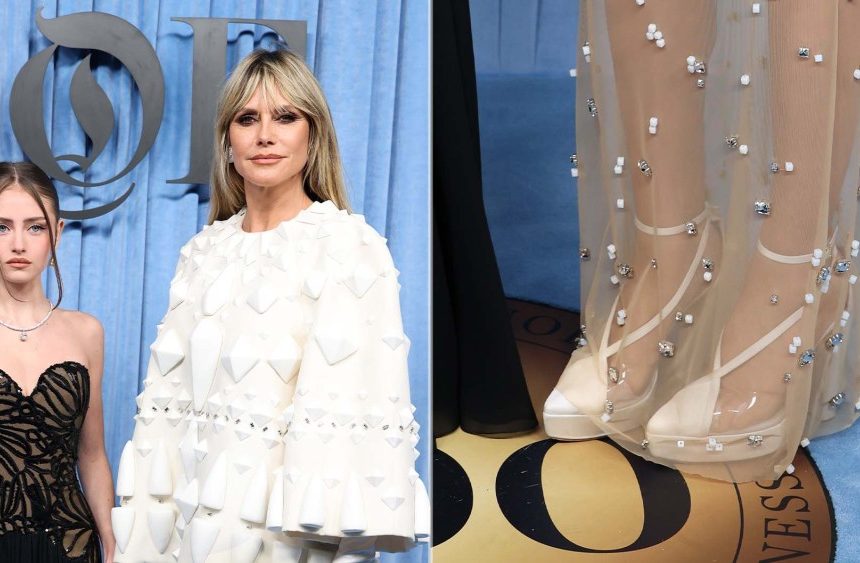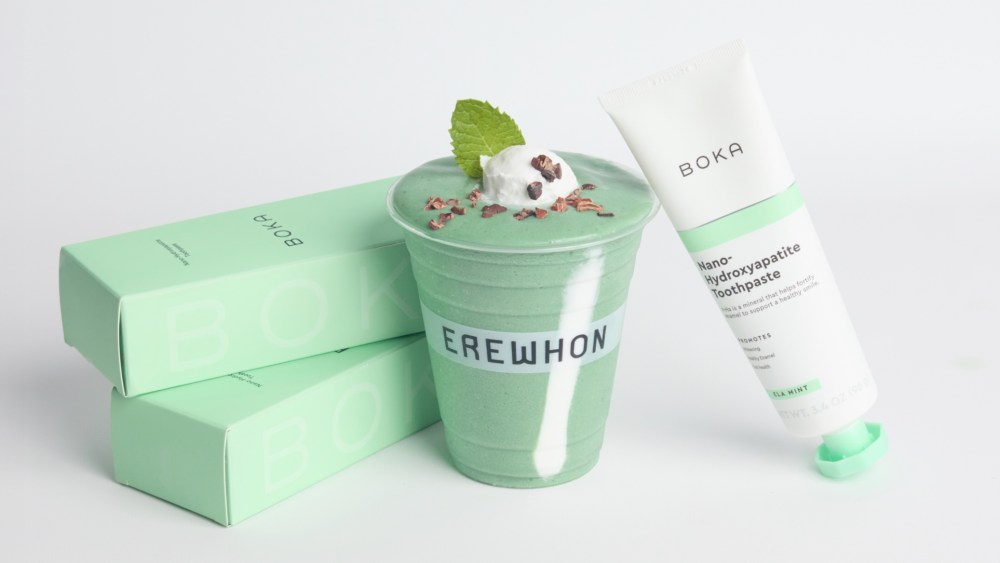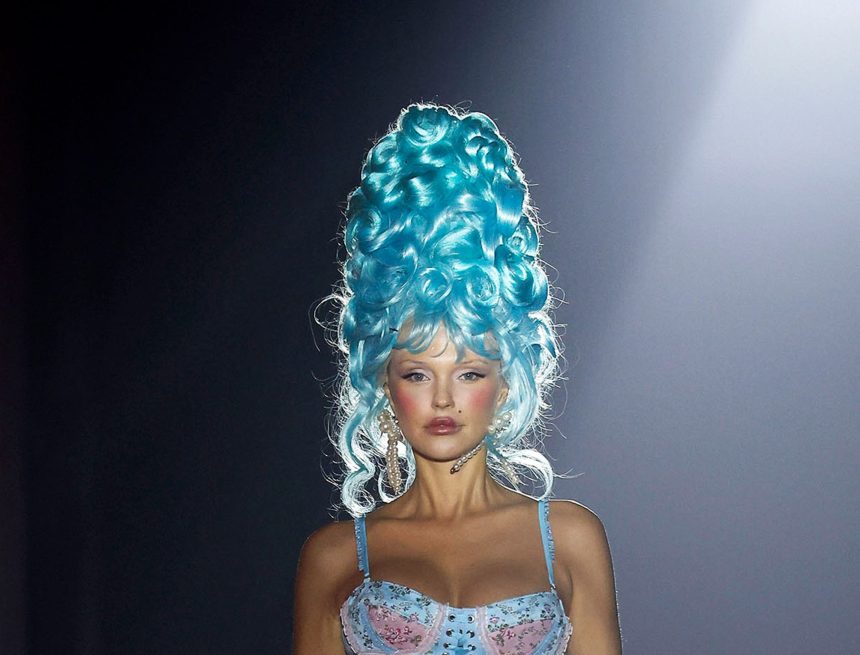Freddy Coomes and Matt Empringham are the designers behind Aletta, the quirky London startup they named after Coomes’s mother. This bright pair of Central Saint Martins graduates (BA class of ’24) is currently giving the long-established school of English eccentricity a fresh face. Their brand is “in its infancy”—this was their second collection—and the two are embracing the radical freedom to be playful and mood-board-free.
“It’s not so much from trying to ‘say’ something about Britishness, which is so messy and absurd, anyway. It’s more of a reflection of who we are—two British guys doing something,” Empringham offered. “I think our work is quite eclectic and visually quite strange at times. We’re at our best when we’re making work that feels authentic. A lot of the time it just comes from making.”
Yet, dodge it as they might, there’s something irresistibly British-preppy about what they’re doing. Their first delivery of flat, stiff, geometrically A-line mini polo dresses literally stands out at Dover Street Market—poking out from the designers’ rack with a cheerfulness that beckons curious shoppers from yards away. “But,” said Coomes, “the process of getting there is far from conventional.” The curious magnetism of their clothes is as much in their quality as their style. “We’re interested in craft,” said Empringham, “which is an overused word. But we do more domestic crafts—we’re hardly expert leather makers like Bottega Veneta, but there’s a technique that’s been fully thought about.”
Using a home-craft material called Kraft-tex, they’ve figured out how to make garments that have characteristically strange planes, angles, and creases, starting with bonding cotton to paper. “Now we’ve been bonding suede to paper, so there’s a card-paper-backed jacket in this new collection, fully handmade,” said Empringham. There was also a pair of brown shorts that, they happily declared, “stand up on their own.” The bag—or the notion of the bag you see clutched in the pictures—was “fused together with leather,” Empringham added. “We were going to make it into a shoulder bag, but then decided it looked better unfinished without any sewing.”
Conversation with the designers can drift toward the conceptual. “I suppose there’s this subconscious feeling that everything kind of has to make sense, and there has to be this logic to it. We deliberately tried to let go of that logic,” said Coomes. “It’s this idea of there not having to be a truth around what a garment is.” Perhaps what they’re really talking about, in a more grounded way, is how to stay creative in an analog, personal way, which they prize above all. Their earliest work has been compared to cartoon cutouts or toys. Their first student work to cause an internet stir—and lots of delight—was a metal rugby shirt bolted together from Meccano, the traditional British children’s construction toy.
This time, they’ve played with shrinking cashmere and mohair sweaters, giving them a tight, wrinkled hip-band effect. “They were originally quite oversized and, you know, they all shrunk differently, so much so that they kind of have their own personality rather than being this ‘luxury product,’” said Empringham.
The result—styled with a red polka-dot midi dirndl and yellow Grenson shoe-boots—has the distinctly awkward charm of Princess Diana in her Shy Di early-’80s years. Another influence the designers talked about was Einstein on the Beach, the Philip Glass and Robert Wilson 1976 opera production, which they watched on YouTube. The upshot: The gray sweatpants and suspenders, and then, somehow, the layering of a neon babydoll over a white T-shirt.
No, it doesn’t make sense, but that’s precisely the joy and the point of it for these two. As students, both interned with Jonathan Anderson—Coomes at Loewe and Empringham at JW Anderson. Aletta is an enterprise they’re pursuing while freelancing “and having jobs outside fashion.” Though the struggle to be independent today is notorious, they’re facing it with eyes open, enthusiastic to get on with being creative. “I think we’re just really happy to be doing this,” Empringham said. “The last thing we want to be portrayed as is people who are very anti what fashion is. Or people who think the industry is broken. If we hated it, we’d just do something else.”


